#Lambeth council
Explore tagged Tumblr posts
Text
Private tenant takes Lambeth to High Court over S21 eviction
Labour-controlled Lambeth Council is being taken to the High Court accused of unlawfully renting homes on the private sector under insecure assured shorthold tenancies and of having made a decision which will see these tenants made homeless – using the dread Section 21 no-notice eviction rule which Labour nationally has promised to ban. Day in court: a High Court judge is to review the housing…

View On WordPress
#Brick by Brick#Central Hill#Central Hill estate#HfL#High Court#Homes for Lambeth#Judicial Review#Lambeth#Lambeth council#Steve Reed OBE#Streatham and Croydon North
0 notes
Text

Greater London Council Fire Brigade headquarters, Lambeth
1985
Greater London Council. Department of Architecture & Civic Design
Image from RIBApix
684 notes
·
View notes
Photo
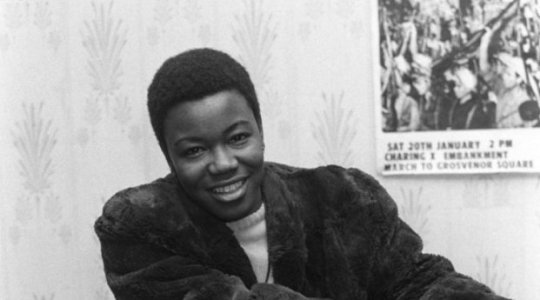
On this day, 26 June 1952, Black feminist and squatting activist, Olive Morris was born in Harewood, Jamaica. Moving to London with her family, she became a founding member of the Organisation of Women of African and Asian Descent (OWAAD), established the Brixton Black Women's Group, was a member of the British Black Panther Movement, and helped found the Manchester Black Women's Cooperative and Manchester Black Women's Mutual Aid Group. Morris was one of the first to squat at 121 Railton Road, Brixton London, an address which subsequently housed a range of community and political groups until the 1990s. She also wrote many articles, about topics like Black and Asian workers' struggles, and critiques of strains of anti-fascism which ignored institutional, state and police racism. In one speech, she declared that "the Black women's movement is part of the world struggle for national liberation and the destruction of capitalism. Only when this is achieved can we ensure that our liberation as Black women is genuine, total and irreversible." Morris was diagnosed with non-Hodgkin's lymphoma, and died shortly after in 1979, aged just 27. Emma Allotey later recalled: "Her premature death was a shock to the community. A Lambeth council building, 18 Brixton Hill, was named after her in March 1986. There is a community garden and play area named after her in the Myatt’s Fields area. In 2009, Olive was chosen by popular vote as one of the historical figures to feature on a local currency, the Brixton Pound." More information, sources and map: https://stories.workingclasshistory.com/article/9836/olive-morris-born https://www.facebook.com/photo.php?fbid=650648680441684&set=a.602588028581083&type=3
228 notes
·
View notes
Text
Bleeding Through Bandages
This fic was crossposted on Ao3. Find it Here. Mind the tags.
Jacob ignores the pain that blossoms across his side, buttoning his shirt slow and methodically. Evie and Henry are waiting for him in the next carriage, and certainly don't want to hear him moan about the small cut that he'd already bandaged. It's not even a bad wound - sure, a bullet wound is always bad, but it's not deep. He didn't even need to stitch it up, just padding the wound and wrapping it in fresh bandages.
"Are you ready to go?" Evie asks, setting a scathing look at him. "I want to make sure George doesn't feel like we forgot about him at the station."
"Of course I'm ready." Jacob lies, ignoring the twinge of pain that chooses that moment to make itself known. "Let's go fetch George from Lambeth Station, and hope he doesn't force us to stop being assassins for running away and picking a fight with the Templars here."
"You didn't tell him?" Henry asks, incredulous. "Of course you didn't."
"It worked out well for us." Evie defends, holding her head high as Agnes brings them to a smooth stop. "The Templar threat has left London, we've freed the people. George should be impressed with our work."
"George should, the rest of the council though-"
"We'll face them when it comes to that." Henry says, including himself in their possible expulsion from the brotherhood. "Let's fetch George, it has been a while since I've seen him."
They all hop out of the train, walking along the platform. Jacob trails behind them, discretely clutching his side. Sure he applied the bandages correctly - or maybe the padding he used shifted slightly - but he could almost swear that his waistcoat is growing wet and sticky. It's not possible - the wound was shallow, it shouldn't be bleeding heavily enough to get through the padding, let alone the bandages, his shirt and his waistcoat.
Evie and Henry turn a corner, heading to the platform where George's train should be arriving at, and Jacob doesn't follow them. Instead, he turns to the small, hidden backrooms. The staff are the only people who are supposed to be in this area, but a few Rooks work at this station, and taught him how to get to these hidden places. He'll just reapply the bandages and catch up. Say he saw a Rook or a familiar face and got distracted.
They wouldn't even pretend to doubt that lie.
Jacob methodically takes off his vest, and his stomach drops.
Nearly his entire shirt is red.
The vest is soaked through, the shirt is unlikely to ever bleach back to its original white too. The bandages, when he manages to get down to them, are a similar bright red. The practically glow against is pale skin - skin that's growing more and more pale as he stands here.
What can he do?
Not much, evidently, as the world is swept from under him, and the void takes him into its loving arms.
#whumptober 2024#whumptober2024#no.22#bleeding through bandages#assassin's creed#assassin's creed syndicate#fic#gun wounds#blood#so a fun fact about the prompts today#i kinda wrote four fics for it#im not going to post one of them#mostly cause im not happy with it. but uh#watch this space
5 notes
·
View notes
Text
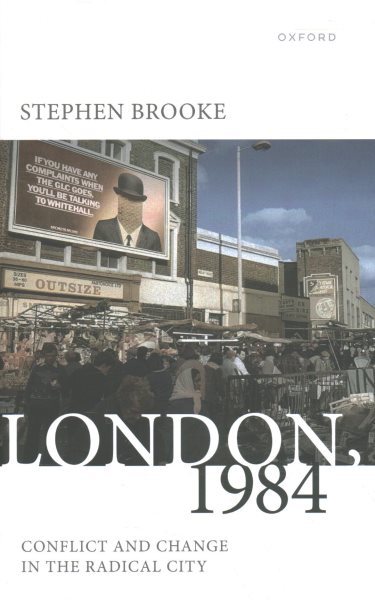
"Using a wide array of sources, many of which have never been used before, London, 1984 explores the radical history of the capital in this tumultuous era, from a major anti-apartheid march in central London to an alternative childcare centre in Dalston, from a protest staged on the Thames against Docklands development to tensions on housing estates in the East End and Tottenham around racial violence and policing, from a raid on a gay bookshop in Bloomsbury to the Greater London Council's attempt to build a challenge to Thatcherism from County Hall, Lambeth, and from controversial and well-known historical actors, such as Ken Livingstone and Margaret Thatcher, to the compelling stories of numerous less famous Londoners who also sought to influence the shape and nature of their city."
4 notes
·
View notes
Text
Shadowrun: Neon Fire - The ROs
Time for a post to introduce the romance options for Shadowrun: Neon Fire.
Early in the game, your character has to relocate from their native Seattle to Neo-Tokyo. There, they will meet an established crew of Shadowrunners which they will join. If you want to work effectively as a team, you’ll need to win the respect of this crew of hardened professionals, who don’t know you or have any reason to trust you.
But it’s possible that you might win more than trust from one of this motley crew...
Quick Note on Gender: The ROs in Neon Fire are gender-selectable. You’ll be able to choose whether you want them all to be women, all to be men, all to be nb, a random mix of these, or pre-set genders. For convenience, in the descriptions below, I’ll be referring to them by their pre-set genders. However, in the actual game their gender will be up to you. So if you like the look of one of them but they’re the wrong gender for you, don’t worry, you’ll be able to change this in game.
SPIDER: A male human physical adept. Spider remembers nothing of his birth parents or family. As a very young child, he was sold to a mysterious religious order who live in a remote mountain monastery in rural Japan. The order trained him up to be a proficient killer, teaching him how to channel his magical energies into remarkable feats of combat strength and agility. But after tragedy struck within his community, he came to learn some hard truths about the order and their agenda. Troubled, he ran away and ended up selling his services in the Neo-Tokyo shadows. He’s a skilled operator with sound judgment, but also inflexible and authoritarian, expecting from his crew the same unremitting and fierce discipline that he demands of himself. His leadership style is already causing tensions within the crew, even before you turn up to add another variable to the volatile mix...
SMOKY: A female troll rigger who grew up on the mean streets of the East End of the London sprawl. Smoky possesses a scrappy optimism, a kind disposition that is rare in shadowrunners, and a child-like enthusiasm for all things mechanical. As a teenager, she saw the military as a way out of a life of crime, and she spent a couple of years as a British Army drone operator, before her unit was sent into the Lambeth Containment Zone to suppress a riot. Issued with an unethical order, she refused to obey, and this pissed off her superiors so much that she felt that she had no option but to flee to the other side of the world to escape the clutches of the Lord Protector’s vengeful agents. She’s made a good life for herself in Neo-Tokyo, but she still has unfinished business back home in London. Maybe one of these days someone will come along who can help her put the ghosts of the past to rest...
DAISHO: A male human street samurai, Daiso is the mystery of the group. He takes the “samurai�� part of his job description more seriously than most, and self identifies as a ronin, a masterless elite fighter. When pressed on this, he will reply that he is a failure who does not deserve a master. His background is a closely guarded secret. He is guided by a rigid and inflexible moral code, which can cause problems on runs and infuriate his fellow crew-members. After all, shadowrunning is no job for a moralist.
BLACKHAT: A nonbinary elf decker. A native of the elven nation of Tir Tairngire, Blackhat is the illegitimate child of a member of the Council of Princes and a human servant who worked on his estate. Upon hearing of his servant’s pregnancy, Blackhat’s father cast her out of the house, plunging her and her child into poverty and a life in the slums of Portland. Although they were born an elf, Blackhat grew to hate the callous elven father who had condemned them and their mother to poverty, and this grew into a broad hatred of the elven supremacy that structures Tir Tairngire society. Young Blackhat began to associate with a revolutionary movement opposed to elven domination. And then, one day, they did something Bad: something so bad that it enraged the entire Tir Tairngire establishment and they had to flee. Since then, they have been hiding in Neo-Tokyo. But Tir Tairngire’s security services are on their trail, and the Ghost Commandos always get their target in the end...
CROWLEY: A female oni mage. A little older than the rest of the crew, Crowley grew up in unimaginable deprivation. Born during the period of Imperial Japan’s anti-metahuman segregation, Crowley was born in one of the detention camps on Yomi Island, the penal colony in the Philippines where Imperial Japan sent all non-humans. Her parents died when she was young in a confrontation with the camp guards, and Crowley had to learn how to fend for herself. She got to know a kindly ork mage in the camp, who secretly taught her how to develop her awakened talents. She thought that she had finally found a protector - until the old ork’s life came under threat and he sold her out to the authorities to save his own skin. She managed to escape Yomi aboard a smuggling vessel before the goons could catch her, and she spent years living in secret in Neo-Tokyo as part of an illegal underground metahuman community. Then the enlightened new emperor revoked Japan’s discriminatory policies and closed the camps on Yomi, and suddenly Crowley and her kind were welcome on Japanese soil. And so was her betrayer, who’s out there somewhere, living in the labyrinthine ork and troll slums of Yokohama... Her deprived and brutal upbringing has made her harsh, self-protective and reflexively hostile to outsiders. Can you break through that armor and discover what it protects?
36 notes
·
View notes
Text
Disappearing schools, families forced out – and we call this progress
“Last week, Lambeth announced that a secondary school founded in 1685 will close for good this summer, with its students farmed out elsewhere. In Camden, St Michael’s primary will not even make the end of the school year – it closes this month, the fourth in the borough to go since 2019. Days before the Easter holiday, Hackney warned that two of its primaries are likely to fold and another four may have to merge to survive. Neighbouring Islington is considering closures, while Southwark believes 16 primaries are at risk.
“This is a huge story, not only about marooned children and panicked parents, or redundant teachers and struggling councils, but the very future of our major cities. These schools are not shutting because they are bad, but because inner London no longer has enough children to fill them. The dead centre of Britain’s political and economic powerhouse is driving out families – and its education system is now taking an almighty hit. Hackney, for instance, has 589 fewer kids in reception today than it did in 2014, a shortfall equivalent to about 20 vacant classrooms. Since schools mainly receive cash per pupil, empty desks mean debts, and debts force closures …
“If this historic shift has a hinge point, it’s the 2010s, when two big forces began reshaping the capital. The first came from Downing Street: since David Cameron moved into No 10, successive Tory governments have taken benefit money from the very youngest and handed it to the oldest. The Resolution Foundation calculates that newborns have lost £1,500 a year in entitlements, while those aged 80 and above have gained more than £500 …
“The post-crash decade also saw inner London turned into a theme park for property speculators. The Bank of England was spraying about hundreds of billions of pounds like it was champagne at a grand prix, the then chancellor George Osborne was chucking taxpayer’s money at the property market, and London councils, including some of Gould’s Labour colleagues in Camden, were allowing developers to run riot. The arguments about gentrification soon descended into cliches about hipsters and Foxtons, when what was really being decided was who would live in the city and who it would serve.”
#schools#education#community#society#working class#working poor#housing benefit#benefits#benefit cuts#welfare#welfare cuts#austerity#david cameron#george osborne#conservatives#property developers#gentrification#housing#london#uk#british politics#politics
17 notes
·
View notes
Text
Date: January 31st, 2023
Episode of the day: MAG 103 Cruelty Free
"ARCHIVIST: B-B-B-But those papers are very important.
KURT: Get away from me.
ARCHIVIST: Fine, fine, just… What’s your darkest secret?
KURT: I don’t know. Er, sometimes I take little bribes, and not give people a ticket.[Realises] Oh, what the hell?
ARCHIVIST: Right, okay, I imagine Lambeth Borough Council would be very interested to know that, and I have it on tape. So… let’s go get those papers, shall we?
KURT: [Afraid] What are you?!
ARCHIVIST: Let’s go.
[CLICK]"
MAG 103 transcript
MAG 103 Wiki
MAG 103 on YouTube
TW's can be found in the transcripts
Asks and submissions are open for episode 103! Send your reactions, insights, memes, art, etc., Regarding today's listen or tag this blog in your post.
For more information check out this blog's pinned post.
Enjoy!
Previous episode ||| next episode
31 notes
·
View notes
Text
Archival Audio Work for ICA X BBC New Creatives
Voices of the Archive shares in the legacy of Black British activist, Olive Morris. Born in Jamaica in 1952, Olive moved to London aged 9. She made fierce contributions to squatters’ movements and Black women’s groups across the 60’s and 70’s. Here her legacy is woven together from oral histories found in the Olive Morris Collection at Lambeth Archives, taken by the Remembering Olive Collective in 2009.
Moving across memories of those who knew her, we don’t just recount Olive’s story, but emphasise the vibrant community that speaks her back to life. Their archival consciousness plays out across a radio. Tuning between static, original music and immersive sound design, we visit different spaces in which Olive is found.
A testament to community, the piece disrupts the erasure and marginalisation of Black history, and generates a messy conversation that resists limiting representations of Blackness. In Voices of the Archive we remember that Black history is living, changing and shared.
Created and Produced by Oumou Longley Executive Produced by Bec Evans (Dazed) Edited by Oumou Longley and Cajm Pickering Sound Engineering by Cajm Pickering Music Composition and Lyrics by Albertina and Jacob Samuel
New Creatives is supported by Arts Council England and BBC Arts.
2 notes
·
View notes
Text
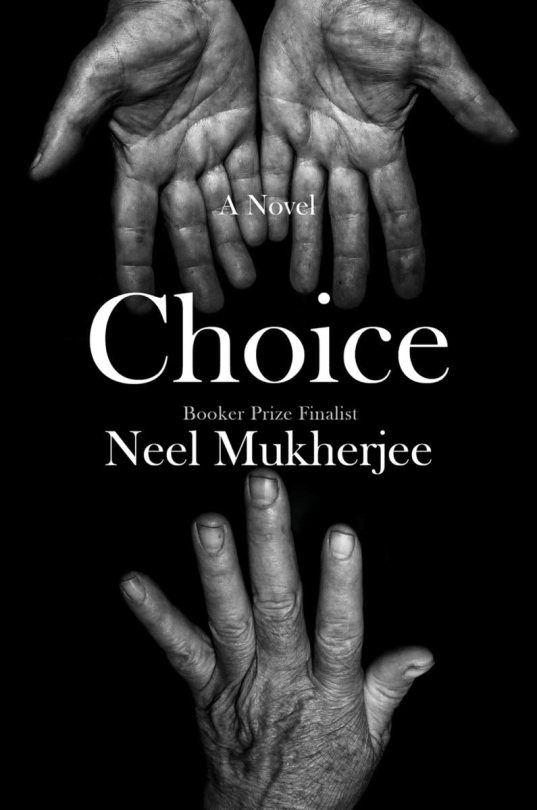
"
Avush has the less remunerative job, so he takes the children to school; as Luke says, Economics is life, life is economics: As always, Ayush tries surreptitiously to scrutinize the faces of passers-by to see if some kind of knowledge imprints their faces, their eyes, when they pass him and the twins, a quantum of a pause, a double take, a second look to pull together a middle-aged South Asian man and two white-ish children into meaning, but no, he is spared today. After drop-off, Arush takes the Tube to his office near the Embankment. He works for Sennett and Brewer, part of a vast international publishing conglomerate. Sewer, as it's commonly known, is a self-styled literary imprint, as opposed to an upfront commercial imprint, of which the parent company has several. Self-styled because that's the window-dressing. Behind the deceitful window, what everyone would really like to publish are celebrity biog- raphies and bestsellers. But the performance of literariness is important and does vital cultural work (i.e. economic work): it pushes the definition of literary towards whatever sells. Ayush knows that the convergence, unlike the Rapture, is going to occur any day now. Maybe it has already happened, but he's still here, playing the old game because it still has residual value. Soon it won't."
"Which more water, washing single portion of strawberries or or cherries, or w/ing entire punnet in one go?' He makes the mistake of looking at both Animal Clock and Kill Counter on his computer before he heads to the meeting room. His breath races with the rhythm and speed of the numbers ratcheting up, as if his respiration is in competition with it. The list is headed by fish, which is already in the seven figures the very moment he opens that page and advancing five figures, in the tens of thousands, every fraction of one second. What goes up every full second is buffalo, which is number 15 of 17 on the list, arranged in descending order of numbers slaughtered: from wild-caught fish, through pigs and geese and sheep and cattle, to 'camels and other camelids'. The clock begins the moment the page opens: it says, 'animals killed for food since opening this page'. Luke would be pleased: he believes in the truth of numbers over the truth of representation. Ayush closes the tabs to stop himself from hyperventilating."
"There is one about Richard Johnson, an elderly Jamaican vegetable-stall owner in Brixton, and the steady, casual, unthinking abandonment he faces from everyone, from the bureaucrats in Lambeth Council and the local Jobcentre Plus to his grown-up son and white daughter- in-law, to his customers who begin to move their business to a fancy organic store a few metres from his shop. Only his ageing, arthritic, halitosis-ridden coal-black dog, Niggah, is faithful to him. Then one day the dog goes missing. On the final two pages of the story, the man walks the length and breadth of Brixton, from Coldharbour Lane to Loughborough Junction, down Railton Road to Brockwell Park, shouting 'Niggah! Niggah!' The passers-by take him to be vet another black person. with mental-health problems that Brixton is notorious for. The page had blurred for Ayush as he reached the end."
"
Ayush has to get the book through the acquisitions meeting this afternoon and he needs to have all his cards ready. He has shared the manuscript with colleagues already - with Anna, of course, but also the director of the paperback imprint, Juliet Burrows, with the sales director of the divi- sion, the marketing people (all men), the publicity team (all young women) - and talked it up, making sure to tick all the necessary boxes instead of actually talking about the literary and, to his mind, quietly explosive qualities of the book. So he had discussed the collection in terms of comparison titles ('as thunderclap of a debut as White Teeth or Conversations with Friends'; he had really wanted to say Lantern Lecture or Counternarratives but he knew that he had to hit topical, buzzy books that were being talked about right now, for ten or even five years earlier risked blank looks), talked up projected sales figures (I think we could be looking at a best- seller like Oueenie or You Know You Want This'; the
collection was light years away from those reference points in every imaginable way). Later today there would be the usual cavils about short stories, the usual deliberate confusion between what sells and what is a good book. There are five other books presented at the meeting by other editors before it's Ayush's turn. One book, by a 'mid. list American writer, is turned down because there really is no place for yet another quiet, beautifully written literary novel'. An Israeli writer, whose first three books in transla- tion they have published, has his fourth declined because the sales record is poor. Everyone has done his or her homework in the only domain that matters here: sales figures of past books. No mention of reviews, no mention of prizes, which, admittedly, have negligible traction on sales apart from one or two brands, no mention of reputation, the meaning of the work (this would be embarrassing to bring up), or anything that cannot be monetized (Luke would have loved publishing), Two non-fiction debuts are given the green light with almost indecent eagerness - one, a book on new motherhood, another on why the author made the life-choice' of not becoming a mother. Both by white women, Ayush notes; reproduction is clearly hot. The book on volitional non-motherhood is based on a blog, the commissioning editor says, and its growing popularity among younger millennials, attested by the author's Twitter following, should assure high sales. There are the usual formulae to talk about books: 'Come for The Handmaid's Tale, stay for Bridget Jones by way of Derry Girls', Kafka meets Fleabag meets anti Female Genital Mutilation social activism', etc. Some of these references pass over his head - Derry Girls? Fleabag? Such a fever of excitement, such hopes of having caught the zeitgeist by its throat. As he tries to dress the words inside him to demur in a way that would appear seemly at a meeting, someone else, someone junior, has the foolhardiness to murmur something, which Anna cuts short with her tart High-minded books won't butter any parsnips.' He feels that she is speaking pointedly to him. Economics is life, life is economics. Several years ago, during the company's Christmas lunch, Anna, after a couple of glasses of prosecco, had observed, We just throw things at the wall and see what sticks. This isn't a science.' She thought she had been making a joke."
"
When Avush's turn comes, he leans forward and speaks of his book as the future of British publishing, the voice of a new demographic, diverse (the buzzy term used to be 'multi- cultural' when he had started out all those years ago), a voice as at ease with hip-hop and Brooklyn drill as with Dickens, a new voice, he repeats, looking back to White Teeth in its vibrancy and to Ghostwritten and Cloud Atlas in the way discrete, disparate narratives come together cleverly to make a unified whole that we call a novel', *a big-L literary work that is also a big-P page-turner' - in moments of extreme despair, he has always fantasized about selling the last free corners of his soul and joining an ad agency - and it would be a terrible missed opportunity to let this book, "so of its moment and so timeless at the same, erm, time', go to another publisher. If self-loathing had material form, like vomit, he would be an abundant fountain now. Is there other interest? Are there any offers already? This from Juliet Burrows, Head of Paperbacks. Of course. No industry is run more by herd behaviour than publishing: we want this book because others want this book, so there must be something in it, but we are not capable of discerning first, we'll take cues from others."
"when the chief fiction buyer of the biggest bookshop chain had decided not to "get behind it'. Whereas before, it was a book evervone had believed in', or said they had, it became, overnight, something like a leper who had walked in from the gutters and stationed himself in the middle of the office: everyone felt embarrassed, full of pity and aversion, and walked in a wide radius around the leper, refusing to acknowledge his presence. Ayush is prepared for Juliet's question. He lies without the barest flicker: I think Jessica said there was strong interest from' - he reels off three names - but no offers on the table yet. I'd like to try a modest pre-empt."
"Ayush grates generous amounts of pecorino onto their bowls of steaming pasta with white-hot attentiveness so that not a single wisp of cheese falls on to the table. Let there be a hundred more years of a better, a healing world, if the tabletop remains untouched by a single particle of cheese. He will go blind with concentrating."
"
*Are you indoctrinating the kids?' Ayush takes a deep breath; if it has to be done, why not begin now. 'I wouldn't call it indoctrination. I think we should teach them about choices and their consequences. Certainly about things that don't appear to be choices, things that are given to us as natural, things we fall into with such ease, such as what we eat, what we are trained to eat. I'd like them to question the so-called naturalness of that.' Luke is silent for a while, assimilating. Then he says, "Sure. But it can't become costly for us.' In their twenty-odd years of being together, Ayush knows 'costly' is the econ-speak for not just the literal meaning of the word, but also for anything that is inconvenient. According to Luke, people simply won't do things, or at least not in any sustained way that would make a difference, if you make it difficult or inconvenient, i.e. costly, for them. 'There are more important things than convenience. If we all thought a little bit less about convenience, not a whole lot, god knows, I'm not asking for much, if we gave up just a tiny bit of our convenience, then maybe we wouldn't be in the state that we're in now.' Whoa, whoa,' begins Luke. Thank god, he hadn't said, What state are we in? Ayush thinks. Most of us can agree on something,' he says, - the badness of eating meat or Facebook - but why are we unwilling to pay the private cost of giving those up? Why has the respon- sibility for action been shifted to the never-arriving public policy or, in your thinking, market solutions to make that large change? Where has the idea of individual agency gone?' Because individual actions are low yield. Policing how much loo roll you use, going on marches, these things achieve nothing. The change needs to be on a different scale."
"You think American Civil Rights protests, for example were low yield? Market solutions brought about the end of that discrimination, at least on paper?' Luke hesitates. Ayush notices the gap and rushes to fill it in: We are all so willing to follow the "no pain, no gain" dictum when it comes to improving our bodies, looking good, about all things feeding our general narcissism. What about "no pain, no gain" for the weightier matters?' You must change your life. "The end of that line of thinking is good old socialism - everyone should have enough; if you have more, we'll take it away and give it to others who have less."
"
Spencer can hear and smell the night's dominion. There he goes, sniffing that low mound of fleabane growing out of a crevice in the boundary wall between 51 and the garage with great, slow intent, then raising his leg and sprinkling it with his piss. What would the moth coming to visit it think? What would it think, what would it think? Pay attention, pay attention, pay attention. How funny, that the verb for the only agency we have, the only thing left to us, the act of noticing, should be one of cost, as if you're buying something in exchange. Lukey would be privately smug about it. If Ayush can step on every alternate slab on the footpath and get to the junction of Half Moon Lane with Milkwood, Norwood, and Dulwich Roads and Herne Hill without one false or extra step or break in his stride, then. If he can get to number 153 without a single vehicle going up or coming down the road, then. His breathing ratchets up. For here there is no place that does not see you. You must change your life. If the traffic lights ahead stay green until he hits the front door of the pharmacy, if Spencer doesn't mark the lamp post whose base he's sniffing, if, then, if then."
"
sectors. Wow, someone from Editorial asks a question. The answer is a succession of PowerPoint slides with blue, green, pink histograms. A joke about data visualization; everyone laughs in a way that the only salient thing is the sound's lack of energy and sincerity. Emails. Meeting for discounts for volume sales in online distri- butions. Meeting for distribution optimization in the bookstore chain. Recently, unconscious bias meetings, at which everyone looks at the floor, their inner selves caught up in a frenzy of eye-rolling, and Ayush feels a strange sensation, both superi- ority and a kind of low-stakes paranoia, as he imagines all his white colleagues hating him for the temporary edge his brown skin gives him at these meetings. Publicity meeting about emerging social media platform targeting. A different stripe of herd behaviour obtains here. Publicists work hard for authors who are already successful, well known; in fact, the more famous an author is, the more publicists work for them, the more attention these writers get, the more famous they become, in a nice, cosy circular feedback loop. Ayush had once dared to ask, in the years when his star was in the ascendant at Sewer, whether it wouldn't be more equitable to redistribute publicity budgets. While everyone had instantly and in unison, as if directed by a choreographer's cue, looked at their papers on the table, trying to find the meaning of life in them, Anna had declared, staring at the whiteboard with a kind of truculent energy, 'We are talking about taking things to another level, not throwing good money after bad."
"The trees look down and ahead and in all directions. The hornbeams and ilexes and oaks in this sector of the forest know each other intimately. They look in all directions, feel and see the birds sitting or landing on them, the humans and squirrels and dogs and the dozens of other creatures below flitting by, so quickly that their passage should be impercep- tible. Would humans register something that flickers across their senses for the tiniest fraction of a second? The trees' unit of time is so great that the smaller calibrations of time among other living things, the creatures that move through the forest, should mean nothing to them. They think of the seasons, of
all the work they need to do, relentlessly, to stay alive and to propagate - the stomata under their leaves opening to let out oxygen; the auxin gathering in the leaves during the autumn and turning them red and yellow; the water going up the xylem, the sucrose going down the phloem to be circulated everywhere. But, wait - do they actually think that? Do human beings think - Here's our heart pumping blood, whooshing out through the ventricles; here it goes down the veins and arteries to carry oxygen to all the tissues and cells and organs? No, they don't. It would make a good children's book to make trees think about their biological processes. Surely, there must be several already? There's moss on their bark and maps of lichen archipelagos. A stand of towering lime trees is perfum- ing the air. What a strange flower - you stick your nose in the blossom and it hardly smells of anything, but, amassed, they create a cloud of the most astonishing fragrance. How much longer will they be here? he thinks. How much longer? Spencer thinks, looking at the wood- land stretching in every direction. How much longer? think the trees."
"opposing philosophical or moral positions as long as the dialogue is not (as it is not in Coetzee) expository, what they call an 'information dump' in creative writing courses? What if the characters are involved, in a way organic to the story, in such discussions or arguments? Can ideas be discussed openly as ideas, or do they always need to be disguised under drama and action and emotional development and all that rubbish, like vegetables smuggled into food for children? Opie writes. Ayush has no meaningful answer to give. "
"How does arrangement confer meaning?
Can one leave the different strands that constitute a story or a novel seemingly unknit and hope - trust - readers to bring them together into meaning?
Why not knit them for the reader? But Avush deletes the question."
"Luke had sighed - a clear indication that he did not want to get embroiled in another Econ 101' war with Ayush - and said, almost in resignation, You want them to live in the greater world, don't you, not be like hermits or holy fools or children forever? They must know the ways of the world.' And here they are, learning, unbeknown to themselves, that economics is life, life is economics. Ayush decides to concentrate on every ticking second of doing the washing-up this is his version of meditation, an almost Zen-like space he enters by throwing himself into the task at hand in all its particulars so that his mind is drained of everything except the minute acts of pouring washing-up liquid on the sponge, sudsing, scrubbing, rinsing, turning a pot this way and that turning on the hot water tap, the cold water tap, getting the temperature just right, a second scrub after the first rinse to get everything sparkling clean. "
"seriously, if this had been happening in one of his authors' books, he would have written 'RE, take one out, you can't have both, esp. so close together' in the margin with his blue pencil - RE' is 'Repeated Example' but this is not a book and reality does not have to satisfy certain conditions of realism, which is, after all, a highly artificial model of the mess that is life. All this goes through his head as Luke rushes over to the children, pulls them into his arms, and says in his tenderest voice, Oh, sweethearts, You were trying to help, weren't you? You were trying to help, My loves,; as he strokes their heads, kisses their cheeks, and placates their tremulous lips and red faces. Ayush is suddenly held in the beam of an illumination: is this, then, what it takes to grow up comfortable in your own skin, comfortable and at ease with the world, the knowledge that there are no negative consequences, however trivial, that you are entitled to kindness and forgiveness and love regardless of what you do? "
"He now thinks that so much of the frequent articulations of impatience and boredom with plot and plotting by writers is nothing more than an inability to know what to do with time, its representa- tion, the modelling of its passage in 200 or 350 or 600 pages. These writers, all enthralled by the self, are hectically caught up in signalling the breaking of new ground when, in reality, they are just trying to dress up their limitations as cool, daring, new, adventurous."
"everything in the world makes one think that the solution lies within private choices, personal responsibility, that it is the individual at the centre of things, that personal agency is everything - taking antidepressants, going running, going to the gym, going for therapy - that these actions, within a person's power, are going to solve everything, because the problems are at the level of the self, the self is everything - look at the chattering monkeys' unceasing din about the zeitgeisty, crapulous 'autofiction'… But what if this centrality accorded the self is entirely misplaced, erroneous, or, as a scientist once joked, not even wrong?"
"
in Aldeburgh on that dirty romantie one weekend getaway, he had picked up a smooth piece of prey stone, marked with an entirely inset map of milk white fat reproduced perfectly the stone's shape. The map had two concentric rings of light grey around it, again, in the perfect shape of itself, as if it were a section of a diagram showing iso- therms or the way the depth of the water shaded in deeper and deeper bands away from the shore. He keeps it on his desk at work. It had begun as a reminder of a time of togetherness, then of a fading time, but that too had disappeared, leaving it silent and marooned as just a decorative object. Thinking of its earlier roles caused Ayush slight discomfort, even embar- rassment. But of late it has started speaking to him again, with the exact words it had used at the very beginning: I shall be your good luck charm, for you have saved me from the fate of millions of my brethren, which is getting caught by wave after wave after wave, then dashed on to the shore, unceas- ingly, over and over and over, until everything is worn down to finer particles of themselves, or until the end of time. No sooner have you thought this is the last dragging-and-flinging, that you'll be out of reach of the next wave that comes along, left to rest with those who have also been liberated, than you're sucked back up again and thrown down. No rest, only motion, motion forever. Here I have perpetual rest.' But now the words mean something entirely different. He often stares at the stone with something tending towards longing, even envy."
//
"Later, she will remember the external geography of the revelations, such as when he said his name was Salim, not Karim, her bafflement had the setting - objective correlative, in her thinking - of the broad avenue running diagonally across Victoria Park, with the Old English gardens, nestled inside topi- aried walls, on their left, the expanse of the manicured parkland stretching out in front of them on either side of the avenue...The red spot under the yellow beak of one just a few feet away from her on the pavement made her want to retch again. That information about correct ownership of the car - or was it the incorrect one that was the admission? - wore the face of the Jehovah's Witness hall on the other side of the road."
0 notes
Text
Recent video work produced for Lambeth Council. The Be Lambeth Awards are a celebration of the borough’s triumphs and a showcase of Lambeth’s extraordinary people and businesses. Congrats to all involved!
0 notes
Text
Davis quits Enfield top job to become Lambeth chief exec
The council chief executive merry-go-round sees a £220,000 boss move from north London and a £30m budget shortfall, to take the reins at Brixton Town Hall, where the budget gap is £50m Lambeth Council has appointed a new chief executive, with the cash-strapped Labour-run authority adding tens of thousands of pounds to its executive staffing bills by hiring Ian Davis. Top job: but will Ian Davis…

View On WordPress
#Bayo Dosunmu#Brixton#Brixton Town Hall#Claire Holland#Croydon#Enfield Council#General Election 2024#Ian Davis#Labour#Lambeth council#Streatham and Croydon North
0 notes
Text
[Image ID: Text of Councillor Sonia Winifred's resignation letter on a white background. It reads, "Taking the decision to resign my seat as Labour Councillor for Knights Hill Ward was one of the most difficult decisions I have had to make. I have lived in Lambeth since 1965 arriving in this country to join my parents who as Members of the Windrush Generation came to establish a better life. Throughout my career I have served the community in Lambeth, my career began as community Librarian in Lambeth Libraries, and in May 2014, I was elected Labour Councillor for Knights Hill Ward, one of the proudest moments of my life!
I have continued to work, live and serve this wonderfully diverse community through listening on the doorstep, regular canvassing, carrying out monthly Councillor Surgeries. For 10 years I have served with enthusiasm and commitment never becoming complacent, never forgetting I was elected by the community to serve the community, to listen and speak on their behalf ensuring their voices are heard loud and clear in the Council Chamber.
This is exactly what I did on Wednesday 24 January by voting FOR the Motion calling for Immediate Ceasefire in Gaze/Israel conflict bringing an end to hostilities. During my 6-hour trial I was questioned on collective responsibility, whether I had considered the impact of my voting FOR the motion on my fellow Councillors. My response as clear, I have every respect for my fellow Councillors, however, collective responsibility does not begin and end in the Labour Group Room. It extends beyond to my constituents and the wider community, those who elected me to speak on their behalf.
This is not how I imagined ending my career in Politics in Lambeth, the events of 24th January are clear, my actions are clear. I remain a member of the Lambeth community, and I will continue to support my community, the events on Monday 26 February which I refer to as my trial, was the most hostile, aggressive, and humiliating environment I have ever encountered in my 10 years as a Labour Councillor. To that end, I no longer have any confidence in the Leadership/Administration of Lambeth Council.
Councillor Sonia Winifred." End ID.]
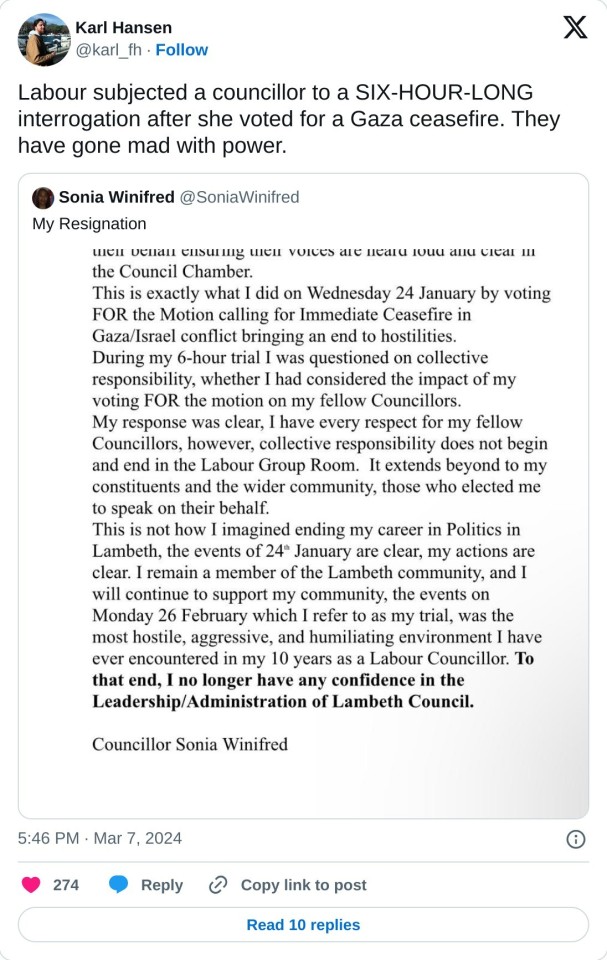
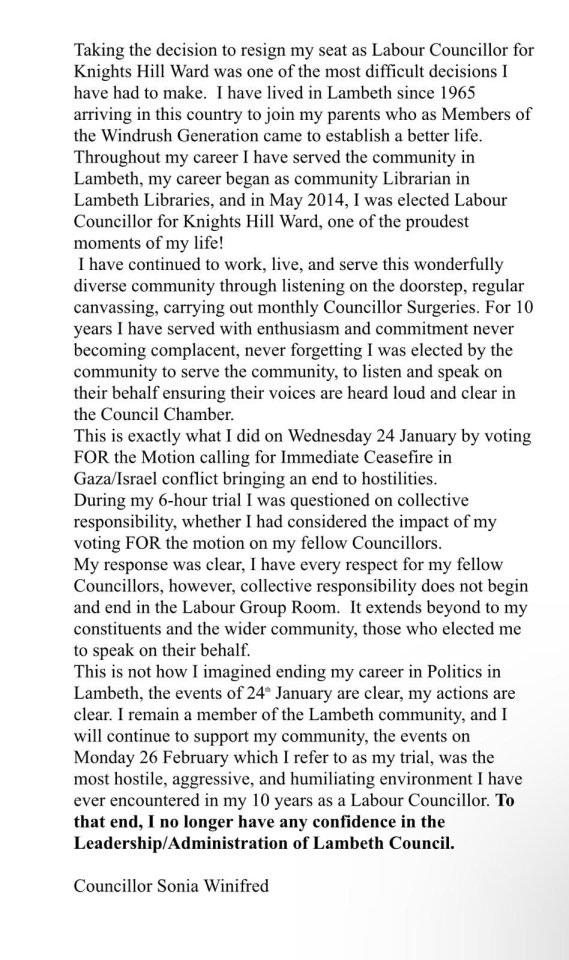
391 notes
·
View notes
Text
Without Prejudice Colonisation In Reverse Decriminalisation 1992 Of Mervelee Myers Put HMCTS CPS CJS Criminals Need Emotional Regulation Treatment Freer Martin Hildebrand Simler Doyle Jones Booth Kernaghan Shanks Dight Parfitt Stockdale Bell Sterlini Rand Zimmel Hayes Naidoo Pigram Bell If Fish Come From River Bottom Say Shark Down There Richard Harty MIC June O'Sullivan's Drag Queen Storytellers HOC Nursery Equality Act 2010 Protected Characteristics A New Met For London Seb Adjei-Addoh Puppet Commander Lambeth Southwark Visit YouTube See Racists Haters In Action From They Failed To Act Barrister Ryan Clement Judgement £9450.00 Court Enforcement LTD Threats Winsome Duncan Stole Manuscript Sent Police To Section Came Between 30/10/17 Murder Kidnap Sir Mark Rowley Can Endorse M&M EmpowerHer As Nigel Pearce Will Be Charged For Discrimination In Public Office If He Fails To Respond To Volunteer Request I Will Name Police Who Tried Section Murder Kidnap Me Between 30/10/17 March 2024
Without Prejudice Mervelee Myers List Facebook LinkedIn Pinterest Google Twitter LiveJournal TikTok Instagram YouTube HMCTS CPS CJS IOPC JCIO CCMCC MOPAC HMPPS DBS CLCC CCCS Barclays Santander Nationwide Financial Ombudsman Services HOS Action Fraud Southwark Council Decima Street Surgery Maudsley NHS DBS Ofsted UK Government Agencies LEA UEL Mayor Of London Allow LEYF June O’Sullivan Richard…
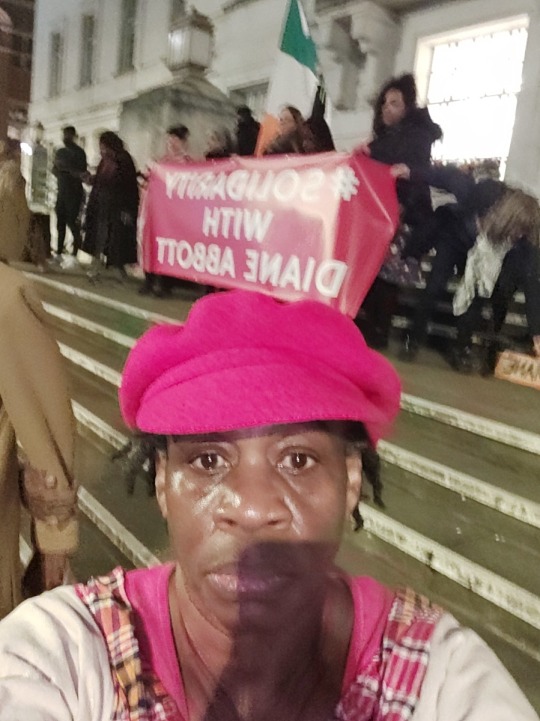
View On WordPress
#http://www.actionfraud.police.uk/#http://www.justgiving.com/Mervelee-Myers#http://www.justice.gov.uk/tribunals/employment/claims/responding#https://fght4justiceadvocacy.business.site#https://www.parkinsons.org.uk/#https://www.ryanclement.com#See https://www.facebook.com that think they can brainwash me ON THIS DAY 4 years ago Mervelee Ratty Nembhard is feeling emotional in Lond#United Kingdom. Shared with Public Thanks 1Son http://worldreferee.com/referee/valdin-legister/bio for bringing me back the Memories! Vald
0 notes
Text
Direct Action Gets Results! Housing Action Group Stages Sit-in
More than 60 members of Housing Action Southwark and Lambeth (HASL) organised a sit-in at the offices of Lambeth Council on 12th January , rasing banners calling for “no more overcrowding”. They sat in for two and a half hours in support of a family of seven living in a one bedroom flat infested with mould. Medical […] Direct Action Gets Results! Housing Action Group Stages Sit-in
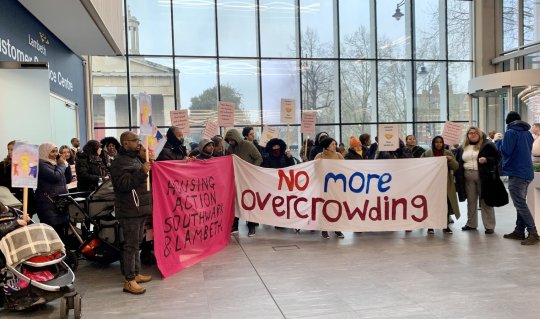
View On WordPress
0 notes
Text
Brixton Academy has been given the green light to reopen
#a good day#very happy#and hopefully the new safety measures will stop another tragedy from happening but not ruin the venue/ make it too restrictive#brixton#Brixton academy#London gig#London venue
0 notes